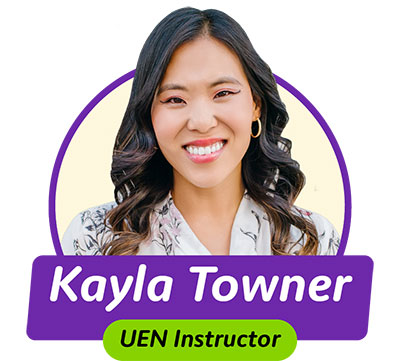UEN Teacher Tips
Teaching students how to evaluate online sources for credibility can be tricky. My favorite approach is the three-step method: Stop and Think, Analyze and Corroborate.
-
Stop and Think! As students read articles that seem outlandish, extraordinary or provoke strong emotional reactions, they should stop and think. Encourage your students to ask themselves, “Is this article believable? Does it make sense?”
-
Analyze - Have students analyze the article by closely reading it to determine the main ideas. Ask your students to question, “Does this article come from a credible, unbiased source?” This requires researching the author and site owner by exploring the site and conducting web searches.
-
Corroboration. Encourage students to verify the article's main idea and key points by comparing them to other reputable sources. Your students can ask themselves, “Do other reliable sources say the same thing?”
Now that we have a good approach, it’s time to practice!
You can practice using this method in a secure online database like Utah’s Online School Library. Before delving into this vast online library, it’s important to help your students become familiar with it. I suggest using Utah’s Online School Library Nearpod Scavenger Hunts created by UEN. These premade Nearpod lessons are easy to download to your Nearpod library and launch with students. Within these lessons, your students can explore the online library and research various topics while applying the Stop and Think, Analyze and Corroborate method.
Here’s a quick tutorial on how to find and use Utah’s Online School Library Nearpod Scavenger Hunts!
Helpful Resource:
-
Utah’s Online School Library (UOSL) Nearpod Scavenger Hunts
-
Common Sense Digital Citizenship
-
6th-grade lesson on “Finding Credible News.”
Kayla Towner is the Utah’s Online School Library (UOSL) Product Manager and a Teacher Fellow for Hope Street Group. She’s passionate about learning that focuses on student agency and encourages educators to expand their comfort zone. Before her work at UEN, Kayla was an elementary school teacher in Utah (Davis) and South Korea.

Share this tip:
You Might Also Like:
- End-of-Year Celebrations and Activities
- Safely Try Out AI Tools in Your Classroom
- 3 Surefire Ways To Increase Student Engagement
- Making Technology-Aided Music with Your Students
- Adobe Express Graphic Organizers


 UTAH EDUCATION NETWORK
UTAH EDUCATION NETWORK

 Justin
Justin Dani
Dani Rob
Rob Val
Val Kayla
Kayla

